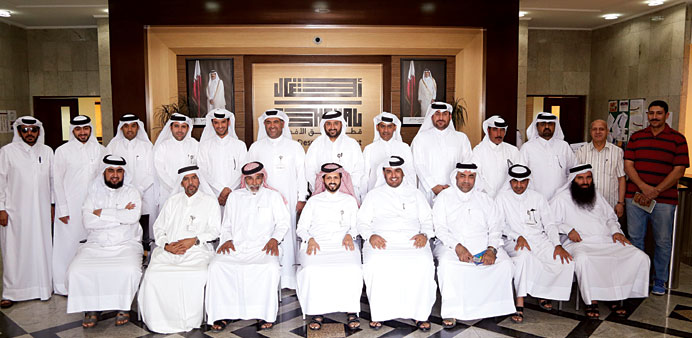The Rule of Law and Anti-Corruption Centre has organised a training course on “New Road Occupancy Law” that covered the Law No. 14/ 2015 about road occupancy.
The course, attended by Ashghal employees, was spread over two days in Ashghal’s Assets Affairs building. The attendees were nominated to become enforcement officers of the particular law in future.
The first day of the training included a presentation that explained the Law No. 14/2015 about road occupancy and stipulated violations. It also covered the concept and the new law acts in addition to clarifying the public and private road occupancy law and showcasing offences controlled by this law. The presentation also explained how to prove, issue and deal with violations.
Teacher of Criminal Law at the College of Law at Qatar University Dr Bashir Saad Zaghloul showcased some samples of issuing violations and exchanged information in the opening session.
Ahmed Matar al-Dousari, Environmental Prosecutor at the Public Prosecution, reviewed and discussed practical cases concerning the law in the second session.
The training aimed to show all kinds of Road Occupancy Law and way of co-ordination, explaining different types of violations. It also helped Ashghal’s proposed law enforcement officers to understand all legal aspects surrounding their job and gain the legal skills while working with violations and fixing them, and learning the key data that needs to be included in the violation record.
Ashghal would hold more training sessions in the coming months in co-operation with the Rule of Law and Anti-Corruption Centre.
The Law No 14/2015 on road occupancy was issued on August 19, 2015 by HH the Emir Sheikh Tamim bin Hamad al-Thani. The law forbids laying utility pipes or maintaining them or occupying the road with anything that might affect traffic safety unless a permit is obtained from the concerned department of the Public Works Authority.
The Public Works Authority is also co-ordinating with the Traffic Department of MoI to issue the licence for the contractors, consultants or other relevant entities to implement temporary closure of a road and to provide traffic diversions if required. The concerned department is also responsible for supervision and monitoring of these works.
According to the Law, the licensee shall comply with the conditions, technical procedures, and the period specified in the license in accordance with the conditions and technical specifications approved by the concerned department.
The licensee shall also abide by the guidelines for excavation works within the right of way as approved by the concerned department. The law also binds on the licensee to restore the public road to the previous status after completions of works.

Group photo of participants in the training.
